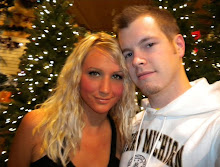
George Washington Williams was one of these heroes. Upon meeting King Leopold, he was "dazzled by the man" (p. 106) and believed him when he said he was not acting out of his pocket but rather his "Christian duty" (p. 106). He wrote the Open Letter, in which he revealed all of King Leopold's and Stanley's atrocious behavior toward the Africans. He was the first person to do so, and, understandably, King Leopold was furious. And because of Leopold's charm and power, he was able to persuade most people that Stanley was a liar. Of course, Williams was not a pure hero, as he abandoned his family in the United States and failed to mention that to his fiance. Such is usually the case in non-fiction - even the heroes have been touched by the corruption of humanity.

Joseph Conrad was another one of the heroes of the book; so much so that Hochschild dedicated the entirety of Chapter 9, "Meeting Mr. Kurtz," to Conrad and his novella, Heart of Darkness. And, having previously read an excerpt from Heart of Darkness, it sickens me to have learned that it is quite possible that the evil Mr. Kurtz was most likely modeled after the murderous, and very real, Leon Rom.
And there were other heroes mentioned as well, such as the British journalist E.D. Morel, who, upon further investigation of cargo being shipped in and out of Africa, determined that all was not well and devoted his life to destroying the evil practices taking place in the Congo. And there were numerous Africa tribal leaders who refused to sell the people of their tribe, and there were always Africans rebelling and refusing to give in, even if it meant they would be brutally murdered.
This book... definitely can move you to tears. The pictures especially got to me, because even when reading about everything that went on and knowing the book is non-fiction, I still felt disconnected somehow. Seeing the pictures of real people chained together naked, or looking at the severed limbs of their 5-year-old daughter... that's powerful. That's not something that can easily be forgotten.

2 comments:
I agree, the pictures were really hard to take. It's one thing to read something you know is real and be bothered by it, but the photographs make it so much more...inescapable, somehow. They deny us the distance that we want.
I almost forgot about the rebellions by Africans. That is one point that Horschild does not cover too much, I suppose because that would be an entirely different subject.
Post a Comment